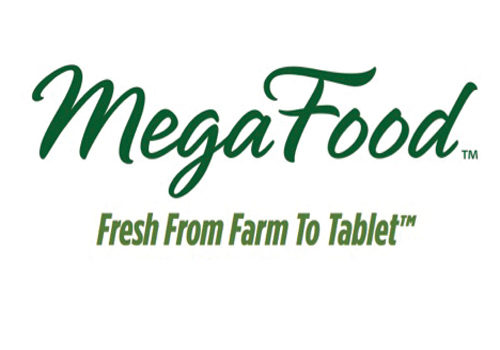Although MegaFood is about to become a quadragenarian, the whole food vitamins manufacturer’s unique sense of business hasn’t changed a lick. The company was founded on the belief that dietary supplements should be made from farm-fresh whole foods, and still holds that belief after 40 years in the game.
“There’s been an unwavering commitment to doing it right,” CEO Robert Craven says. “We talk about taking the road less traveled. I can give you example after example of where we have made investments that other companies haven’t. We have our own lab; we do +90% of our testing in-house in our ISO-9001-certified lab facility, which means we’re using the right standards.”
MegaFood is vertically integrated, so it brings in fruits and vegetables and manufactures its own ingredients. It then takes those ingredients, puts them in supplements like whole food vitamins, and ships them right to stores. “It’s all made in New Hampshire,” Craven states. “It’s an extremely unique story in our industry.”
Doing It Right
Despite it potentially hurting business, MegaFood doesn’t put its bottles in boxes because, according to Craven, “we don’t think it’s very good for the environment. You get a lot of marketing play from that box, but those boxes get thrown away and very few get recycled. It’s harder for us to market without those boxes, but it’s the right thing to do.”
On top of that, after running into some issues with Proposition 65, instead of putting warning labels on the bottles, the company decided to completely reformulate its products for California. He estimates it costs the company hundreds of thousands of dollars and a lot of time and energy, but Craven “wanted to give the fine folks of California what they were looking for from our Prop 65 standpoint. So, we went out of our way to do it right.”
MegaFood also has live online cameras at its manufacturing facility, so consumers can see the bottling and drying processes, as well as the lab and where the ingredients are made.
“The fact that we’re really the only company that can claim to start with fruits and vegetables, literally buying fruits and vegetables from a farmer and all farmer connections, is just gigantic to us, and we’re in the process of really promoting the farmer connections, which is another point of differentiation for our brand,” Craven says.
MegaFood Making Moves
MegaFood is partnering with Andrew Weil, M.D.,—a world-renowned leader and pioneer in the field of integrative medicine—to bring science-based education programs and products to natural retailers and their customers. Craven says MegaFood offers four-week workshops “where we help bring the consumer and their friends and family back into the store every week to learn.” Each two-hour presentation discussing the store’s offerings is given by the store’s staff, which Craven says, “is critical because you want that consumer to have a relationship with [the store].” MegaFood also is working hand-in-hand with Weil and his team to develop new product ideas and direction.
In addition, MegaFood has been certifying its suppliers as non-GMO since 2007, so its entire line of products is non-GMO from a SIDI documentation standpoint. “Basically [SIDI is] a method for validating non-GMO suppliers,” Craven says. “The Non-GMO Project certification goes much, much deeper; so we’re very proud to have our first product certifiably guarded in the pipeline. We’ve also created a non-GMO working group with other competitors and suppliers in the industry to really advance the cause of non-GMO supplements. We’ve got 20-something companies now in this non-GMO working group that we established back in March to help really advance the cause.”

|
|
| Robert Craven, MegaFood CEO |
The non-GMO effort, especially the certification, is geared toward food. Craven explained that a bag of chips is usually a couple of ingredients, so it’s pretty easy to notch a non-GMO certification. However, there could be as many as 40 ingredients in whole food vitamins, and the level of documentation needed on each ingredient by the Non-GMO Project is extraordinary. “It’s interesting because a supplement that has no food is actually easier to verify in the non-GMO project than a supplement like ours which is all food or +90% food,” he says. “It’s an interesting conundrum; it’s not something they intended at all. So, we’re working with them to try and tweak the standards so it makes more sense for supplements.”
Going Forward
Craven feels MegaFood is still a very small brand in the natural retail space, so the company is focusing squarely on natural retail. “We still have a significant amount of growth right here in this space,” he said. “We’re doing everything we can to tightly partner with retailers.”
He adds that MegaFood is “in the business of improving lives,” and that “we literally measure revenue by lives improved; it’s kind of an internal metric that we use to keep our minds focused squarely on what we’re here to do, which is promote health and wellness to the natural retailer.”
A phenomenon Craven referred to as mass flippage is happening where grocery stores and drug stores are starting to ride the coattails of whole food vitamins and organic food’s popularity, and that is something the company is trying to combat.
“We really want to promote and support the natural retailer in a way that helps them maintain credibility and even grow market share because they’re offering something that their competition just can’t offer, which is credible education and connection to the community,” Craven says. “It’s a beautiful situation because there’s a movement out there with the consumer focusing on fresh, local foods and on understanding where your food comes from, and we feel like we’re right in that sweet spot with the natural retailer.” WF
Published in WholeFoods Magazine, September 2013










